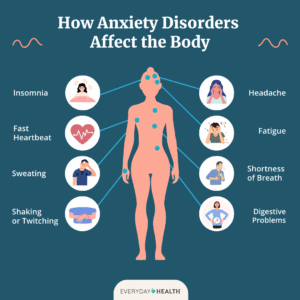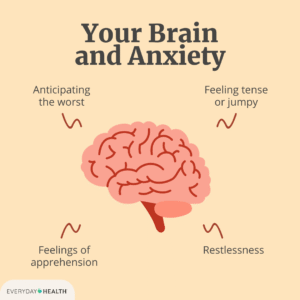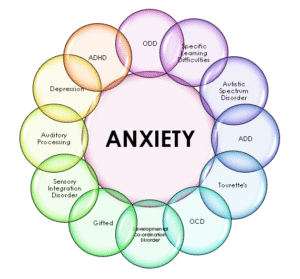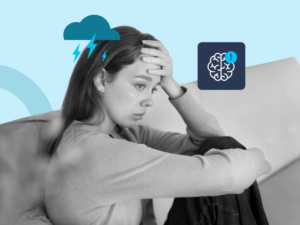“Silent Storm Inside:Unmasking the truth about anxiety”
Worry is a natural emotional response to stress,danger or uncertainty.
Worrying can cause anxiety.It can lead to depression.It can make people stressed out which can affect their health.It can lead to anticipation.It can lead to poor health,internal and external health .It can also lead to anxiety about the future and worries about the future.
Although occasional anxiety is normal,persistent or excessive anxiety can interfere with daily life.

Symptoms of Anxiety
These symptoms can interfere with a persons’s quality of life but are very treatable.
- Fast heartbeat
- Rapid breathing
- Sweating or shaking
- Felling restless or anxious
- Panic disorder
- Social anxiety disorder
- Phobias

How To Control Anxiety
- Breathing and relaxation techniques:Waking up early morning and doing anulom vilom pranayama will make a person feel fresh and stress free.
- Exercise:Regular physical activity ,even moderate excrcise ,can help reduce anxiety symptoms.
- Healthy Diet:Focus on a balanced diet with plenty of fruits,vegtables and whole grains.Limit caffeine and alcohol,which can worsen anxiety.
- Sleep Hygiene:prioritize getting enough sleep.Aim for a consistent sleep schedule and create a relaxing bestime routine.

Causes Of Anxiety
The symptoms of anxiety can include a high pluse rate ,lack of sleep or restlessness,trembling ,and lack of concentration.Multiple reasons can cause anxiety ,like brain chemistry,personality traits ,life experiences or a combination.
- Chemical imblance:While chemical imbalance are not directly linked to anxiety and depression,they can influence mood exacerbate existing anxiety symptoms.
- Environmental factors:A study by the university od cambridge highlights that parenting style and the surrounding environment can sighificantly influence anxiety development in childern affecting them both in the short and lond term.

Summary
While occasional anxiety is normal,excesssive or constant anxiety may signal an anxiety disorder.It can be caused by genetics,brain chemistry ,trauma ,stress or lifestyle factors.common triggers include social situations,health issues or future uncertainty.
Leave a Reply